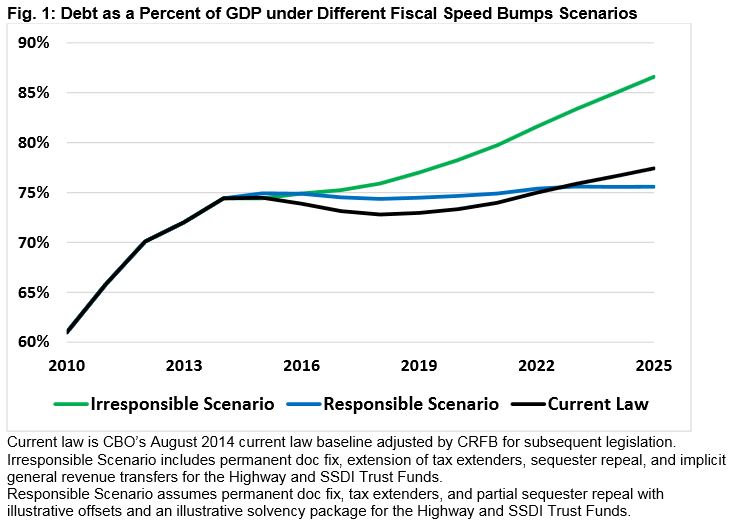Fiscal Speed Bumps Will Keep the New Congress Busy
Although the 114th Congress is just getting settled, it will have to move quickly to address a series of deadlines with serious policy and fiscal consequences. These "Fiscal Speed Bumps" present serious challenges and risks but also opportunities for policymakers, as we explain in a new paper.
The paper lays out the seven speed bumps -- six this year and one in 2016 -- that policymakers will have to (or should) address this year, what policymakers have usually done in the past, and the consequences of inaction for each. These speed bumps are:
- Expiration of the CR funding Homeland Security (February 27, 2015)
- Reinstatement of the debt ceiling (March 16, 2015/Fall 2015)
- Expiration of the “doc fix” and return of the SGR (March 31, 2015)
- Expiration of the highway bill, insolvency of the Highway Trust Fund (May 31, 2015)
- Expiration of 2015 appropriations, return of sequestration (October 1, 2015)
- Deadline to renew tax extenders retroactively (December 31, 2015)
- Insolvency of the Social Security Disability Insurance Trust Fund (late 2016)

At stake with these speed bumps is a potential $3 trillion swing in debt through 2025 depending on whether lawmakers take the most responsible route and offset deficit-increasing extensions or repeals and make trust funds solvent or whether they ignore costs entirely and transfer general revenue to the trust funds. Being responsible would not put the debt on a downward path, but it would prevent the situation from getting worse and indeed could make the outlook slightly better. How lawmakers deal with the Fiscal Speed Bumps will also have a great impact on policy uncertainty -- whether things are dealt with permanently or temporarily -- and policy quality, depending on whether they enact smart reforms or resort to budget gimmicks.

There are a lot of decision points where Congress and the President will have to act or otherwise risk serious consequences and disruptions. They should deal with them in a responsible way by not adding to the debt like they did in the past year.


